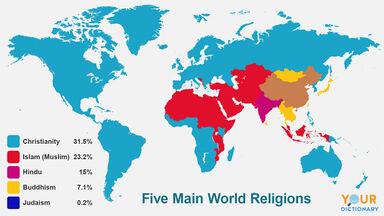Ramayana Definition
rə-mäyə-nə
noun
One of the two great epics of India, written in Sanskrit some time after the Mahabharata and telling of Rama.
Webster's New World
Origin of Ramayana
-
Sanskrit Rāmāyaṇam the going of Rama Rāmaḥ Rama ayanam a going, way (from eti ay- he goes ei- in Indo-European roots)
From American Heritage Dictionary of the English Language, 5th Edition
Related Articles
Ramayana Is Also Mentioned In
Find Similar Words
Find similar words to Ramayana using the buttons below.
